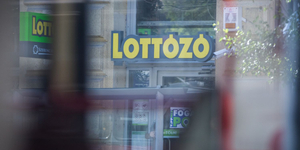Hunting the culprits
Lack of money and commitment from officials
If hooligans begin throwing seats at a football match and hold a racist demonstration, then the club gets punished - even though it was not the club that incited the crowd. It seems to me that Hungarian politics should not be held to less strict criteria than the catastrophic world of Hungarian football. But it would seem that centuries-old trees, stands, roofs are as nothing compared to the sturdiness of the politicians' velvet chairs.
Budapest on Budapest
The people of Budapest worry less about traffic jams, car emissions or crowding than about tramps, the homeless and dog dirt, a new survey conducted by Median for HVG has shown.
Storm in Budapest
A storm in Budapest has claimed three lives, including that of a twelve-year-old girl, and some 200 casualties. At least 240 people were injured, and two were washed away by the Danube. Gabor Demszky, the mayor of Budapest, has called for an inquiry. The National Meterological Service had correctly forecast that the storm would reach the capital just when the fireworks began.
Grass and Istvan Szabo
Gunther Grass's shocking confessions about his past have recent parallels in Hungary. Grass donned a black uniform. Szabo wrote reports on his friends and classmates. But both come out of their scandals rather well. Istvan Szabo did not become less popular as a result of his informant past. Grass's sudden burst of honesty can have done little harm to sales of his recently published autobiography.
Changing figures
The government recently changed the way it calculates the budget deficit. It forecast a deficit of 8.8 per cent of GDP for 2006, even though it already stood at 8 per cent in June. When prime minister Ferenc Gyurcsany and finance minister Janos Veres met with Joaquin Almunia, the European Union finance commissioner, the trio agreed that Hungary's convergence programme could only be accepted if the costs of building motorways were accounted for within the budget. This accounting change forced revisions to the 2007 and 2008 deficit plans and meant that the introduction of the euro had to be postponed to 2011 or later.
Laszlo Lengyel
Viktor Orban might have helped Fidesz escape from its present travails. The radical Christian national strategy failed with the December 2004 referendum. If Orban had managed quickly to clamber out of the hole, turning to the Europewards leading path of the civic liberal, liberal-conservative cities and businessmen, he might have won in spring 2006.
A Kadarist package
The parties may one day take a back seat, ceding their place to a government of experts, the historian Maria Schmidt believes. She said both the left- and right-wing press was unable to recognise the real danger and distinguish between moderates and the real extremists. The political elite has difficulties with its communications strategies, much of society is trapped, and the resulting despair may nourish a process of radicalisation.

















